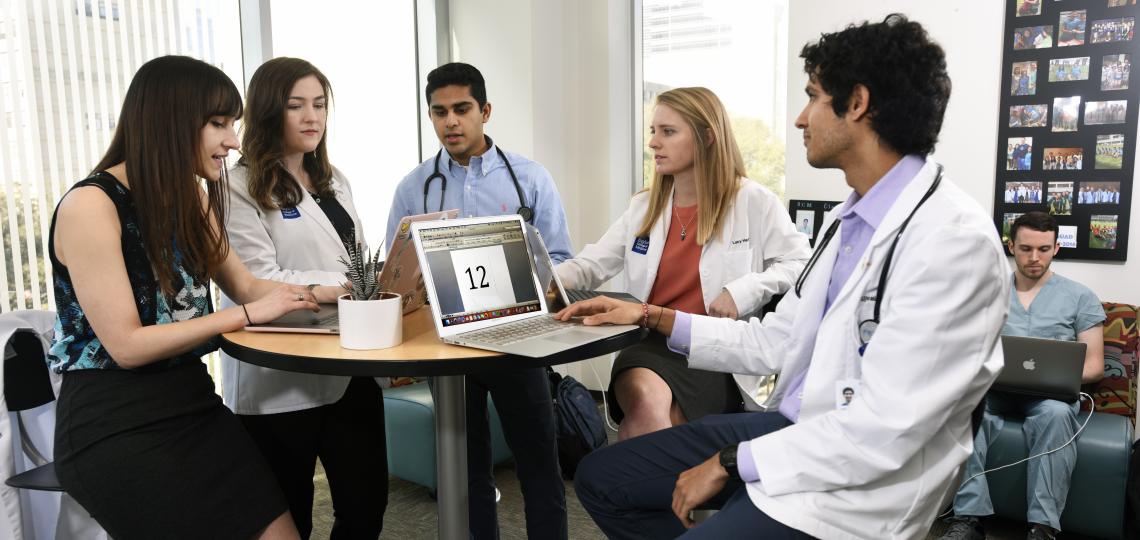Medical Humanities Pathway
Established in 2023, the Medical Humanities Pathway provides students with instruction that hones the analytical, communicative, and performative skills utilized in the arts and humanities. To that end, close readings of literary works illuminate the critical importance of different perspectives—many from underrepresented populations—thereby helping students build their capacity for attention and ability to empathize. Additionally, activities like art viewing afford students the opportunity to hone visual observation skills, build awareness of bias, and learn to understand others' perspectives while respectfully sharing their own. Other pedagogical aims, like analyzing the structure of an argument and appreciating contextual elements of time and space, utilize creative works to help learners communicate with different people—including their own patients and colleagues—in different contexts. Our aim is not to provide lectures on specific content in the manner of science-based courses, but rather to provide rigorous coursework in the arts and humanities grounded in evidence-based methods, including problem-based learning. Ultimately, the Medical Humanities Pathway aims to equip students with the intellectual tools to recognize the meaning behind their daily practice of medicine. To that end, faculty serve as more than just teachers. Experts in the medical humanities, as well as practicing artists and clinicians, serve as the core faculty that help students cultivate the ideas springing from this new education. They also mentor students on how to develop these skills for lifelong learning.
Narrative Medicine Intersessions
Along with our colleagues in the Office of Student Affairs, we have developed a series of 90-minute narrative medicine workshops for second-year medical students. Each student attends six sessions as part of a wellness initiative between their 2nd and 3rd year of medical school. Workshop facilitators use published written work to stimulate discussion, increase knowledge of literary terms, and build reflective writing skills. The workshops are required as part of the students' core rotations. We collected data on their effect on empathy, emotional intelligence, and burnout through a series of surveys. We presented our results at the AAMC Annual Meeting in 2022 and published an abstract in Academic Medicine. Although medical students did not report fewer signs of burnout after the sessions, we did see increases in empathy and emotional intelligence.
Wednesday School
Along with the chief residents in the Internal Medicine Residency program at BCM, we have developed a medical humanities curriculum that is integrated into their weekly didactic sessions (known as Wednesday School). Residents have attended lectures and participated in small group activities on the following topics: social determinants of health, literature in medicine, healthcare ethics, music therapy, palliative care, life-writing, and other topics related to the medical humanities. We instructed the speakers to structure their session around the themes of attention, empathy, and tolerance of ambiguity as these are topics that the AAMC and other medical education organizations have endorsed as important for learners. As of January 2024, We have held more than 70 Wednesday School sessions with 30 different speakers representing a range of arts and humanities disciplines (music therapy, art in medicine, poetry, literature, disability studies, medical ethics, etc.). More than 300 residents have attended these sessions to date.









